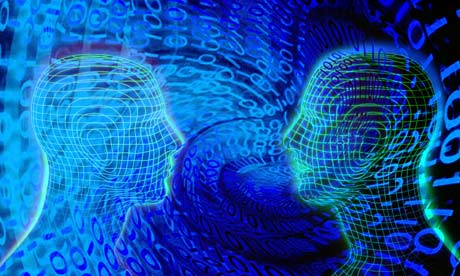 The Age had a great article today on the way our digital culture is actually changing our brains. There has been alot written about this in recent years. The Atlantic had an article back in May about the fact that social media like Facebook and Twitter is making us lonelier while at the same time we have never been more connected. Here are some very insightful quotes from the Age article:
The Age had a great article today on the way our digital culture is actually changing our brains. There has been alot written about this in recent years. The Atlantic had an article back in May about the fact that social media like Facebook and Twitter is making us lonelier while at the same time we have never been more connected. Here are some very insightful quotes from the Age article:
- ”There is a massive and unprecedented difference in how [digital natives’] brains are plastically engaged in life compared with those of average individuals from earlier generations and there is little question that the operational characteristics of the average modern brain substantially differ,”
- “Eye contact is a pivotal and sophisticated component of human interaction, as is subconscious monitoring of body language and, most powerful of all, physical contact, yet none of these experiences is available on social networking sites. It follows that if a young brain with the evolutionary mandate to adapt to the environment is establishing relationships through the medium of a screen, the skills essential for empathy may not be acquired as naturally as in the past.”
- “A recent study from Michigan University of 14,000 college students has reported a decline in empathy over the past 30 years, which was particularly marked over the past decade.”
- “A survey of 136 reports using 381 independent tests, and conducted on more than 130,000 participants, concluded that video games led to significant increases in desensitisation, physiological arousal, aggression and a decrease in prosocial behaviour.”
- “Can the internet improve cognitive skills and learning, as has been argued? The problem is that efficient information processing is not synonymous with knowledge or understanding. Even the chairman of Google, Eric Schmidt, has said: ”I worry that the level of interrupt, the sort of overwhelming rapidity of information – and, especially, of stressful information – is, in fact, affecting cognition.”
The article also mentions a great new book by the psychologist Sherry Turkle, called Alone Together: Why We Expect More from Technology and Less from Each Other in which she says that the more continuously connected people are in cyberspace, the more isolated they feel. The Atlantic article makes a similarly profound point, saying that connection is not the same as bonding, meaning that true intimate relationships cannot be worked out purely online.
The Age article also points out the clear benefits of social media and our digital culture, and these need to be highlighted and worked on to see how we can improve life through technology. Much has been able to be achieved in human rights for example that could never have been achieved even a decade ago or less.
For all the benefits of digital technology, let’s not forget that they will never replace real relationship. They will never replace real human contact, face-to-face in person contact. This is simply the way we have been made; it is what makes us humans, relational creatures made in the image of a relational God.




0 Comments
1 Pingback